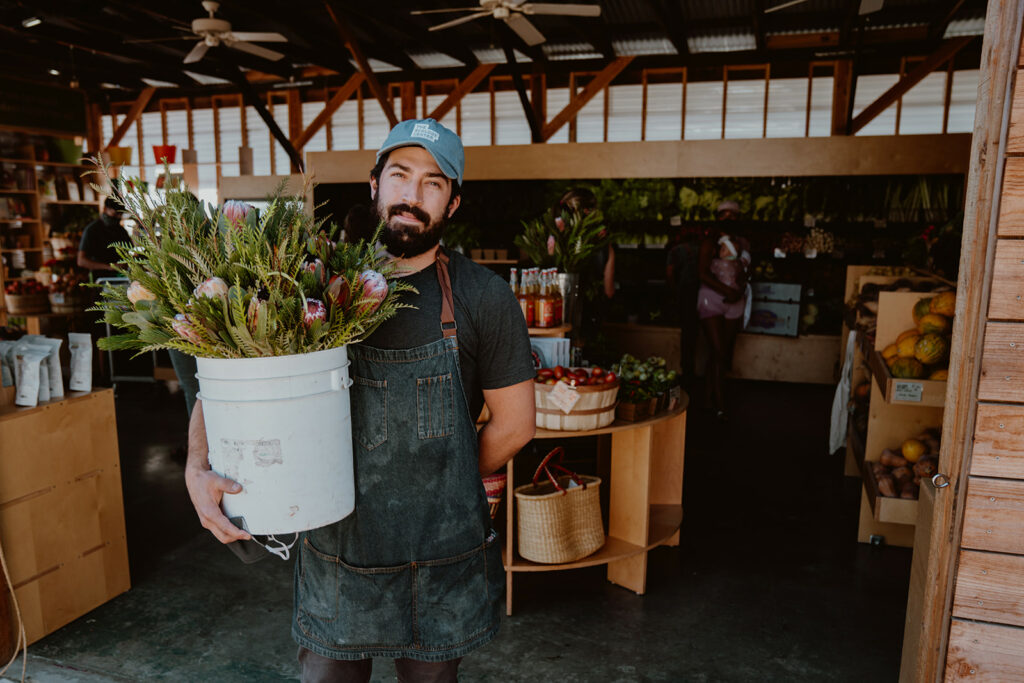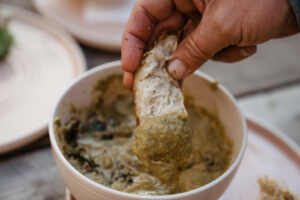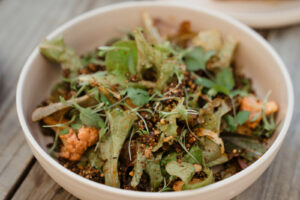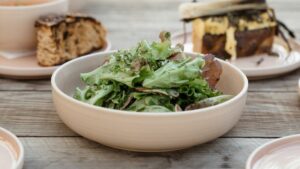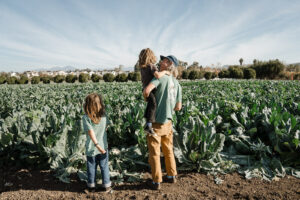Our foodsheds are full of food artisans who are passionate, full of integrity, and right in our own backyard.
Where you spend your money says what you support, so if you buy processed food, grown by big agriculture, you’re feeding the conventional machine of nameless, faceless, and story-less food.
Instead, what if we were to put meaningful dollars in the hands of the people working to make our communities incredibly alive? What if we were to choose farmers, artisans, brewers, mead makers, cheese makers, grain growers, and bread makers from within our community? We want you to vote with your dollar by choosing to support local people, local systems, and progressive ideologies.
There’s a growing consciousness around sourcing local. By buying local, you naturally eat with the seasons.
As a stepping stone from “Eat Fresh and Seasonal,” (Community Table Principal #1) “Buy Local” is about building local economy in all of our food systems, and we have the power to do that by being selective about what we purchase. “Eat Fresh and Seasonal” connects us to the seasons, our farmers markets, and hopefully starts to get people in the garden, getting their hands dirty. From there “Buy Local” goes beyond just fruits and vegetables, taking us into the realm of food artisans. In our communities foodsheds, and bio-regions, in order to really be sustainable, we have to rely on the people in our community to make the products we need.
By buying local, we are able to cultivate a collective process that stewards our landscape with a far deeper and wider reach than just produce. It keeps money in our community and it gives jobs to the people we live next door to. By purchasing value-added products grown and made with integrity, like local pickles, james, and breads, we’re supporting not only the energy it takes to grow it, but also the people passionate about the same things we’re passionate about.
It’s easy to buy local when local products are almost always the most delicious. They’re made with the kind of integrity you can actually taste.
Really, the thing we’re trying to avoid by buying local is buying things that are industrially processed. Usually, a product has traveled far – from out of the country or out of season – and it has likely been grown and transported in such a way that the practices and methods used are not in alignment with a sustainable, conscious, and regenerative food ecosystem. As a result you are buying food without much love in it. And what does that really have to offer our vibrant food community in the future?
Practically speaking, what are the things that we can’t produce in a “Buy Local” economy? Truly, not much. Over time, you will likely find a few things you cannot buy, but chances are that a lot of those things are not that important for daily consumption. Wine, for example: we have winemakers throughout Southern California who are doing an amazing job as stewards of agriculture, offering beautiful artisan products on the market. Because of the work they do, we do not think you have to import a lot of French wine for daily consumption. That does not mean that French wine is not amazing, but it allows for French wine to be special. It gives us the chance to really enjoy French wine on a daily basis when we go there. It lets us understand why French winemakers are incredibly talented at what they do and why they have done it in such a special way for so long. That is our thought, and we might be biased considering how much we love California and Californian wines, but cheese is the same thing. We live in a place without pasture so we have to expand our local economy, or at least the reality of our local economy, when it comes to certain products like cheese. For Southern California, we have to look to Northern California to see what cheese makers from that region can fill our needs.
We do believe in buying local whenever possible because supporting local artisans directly benefits your community, but we do understand that you cannot get everything, always. Take the time to find the artisans that create products with integrity and intention, then fill in the gaps with other resources available to you.
A rich tradition of food artisans and methods of preservation have taught us that everything you can buy in the store can, in some way or another, come from our backyards and from local farmers. We challenge you to think beyond just the common stuff and to make a point to purchase things like fish from your local fish market, to be dedicated to doing your part of adding to the dynamic vibrancy of your local community.
At the end of the day, the people growing food, making products, and sustaining us need us to support them with our dollars, our commitment, and our connection.


